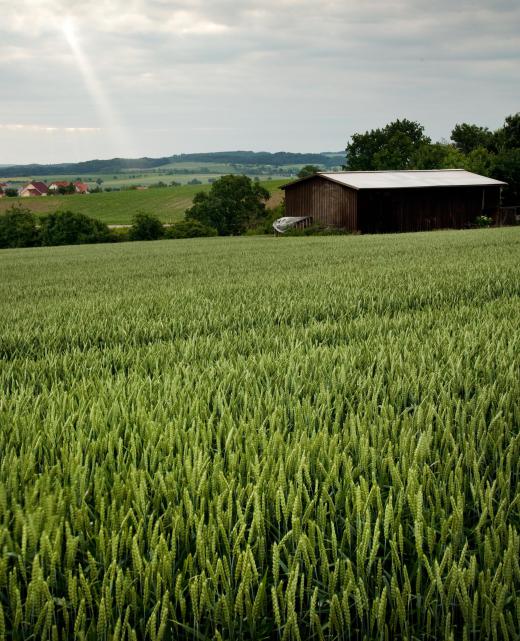In-vessel composting takes on many forms but is distinguished primarily by the use of a container, as opposed to the open-air pile approach or the covered piles of other methods. Some versions call for a container, or vessel, that is rotated to aerate the compost and speed decomposition; other methods, such as vertical compost units (VCU), rely on gravity and the upward movement of hot air to provide movement. Many in-vessel composting units are completely closed or sealed systems, but others may at times be operated open to the outside environment. As with any composting, some sort of bulking material, such as wood pulp, may be added to assist aeration.
In their more basic forms, in-vessel composting units may resemble small concrete mixers. Such units may be found in backyards or gardens and consist of a drum that is sealed and periodically turned by hand after adding new material to the compost. Another, much larger example may be used by farmers to dispose of dead animals and other organic farm waste. In these more basic forms of in-vessel composting, the compost may require a period of time outside of the vessel for the elements to stabilize before it is usable.

The big selling points of in-vessel composting are odor reduction and reduced leachate — contaminated water produced as run-off from piles of compost. While some units may require the compost to be finished in an open-air manner, the period during which compost emits its strongest odors is during the time it is still in the container. Any leachate produced is prevented from contaminating the soil by the fact it is in a container, but the amount produced is also decreased, because the water content of the compost can be controlled. Some types of more advanced systems even claim to produce no leachate at all. These features are particularly appealing in places such as school cafeterias or restaurants, where units may be used to dispose of food waste.
When composting on an industrial scale, some may favor the economy of open-air composting, such as the windrow method, in which the compost is shaped into long piles called “windrows,” but health regulations may prompt preference for the in-vessel method. Aside from the odor and leachate concerns, the in-vessel methods prevent the compost from attracting wildlife and give greater control over the entire process, even allowing composting to take place inside locations such as kitchens. According to manufacturer claims, some in-vessel units may greatly decrease the time required to produce finished compost, and some VCU units allow for compost to be continuously retrieved from the bottom even as new material is added to the top.
